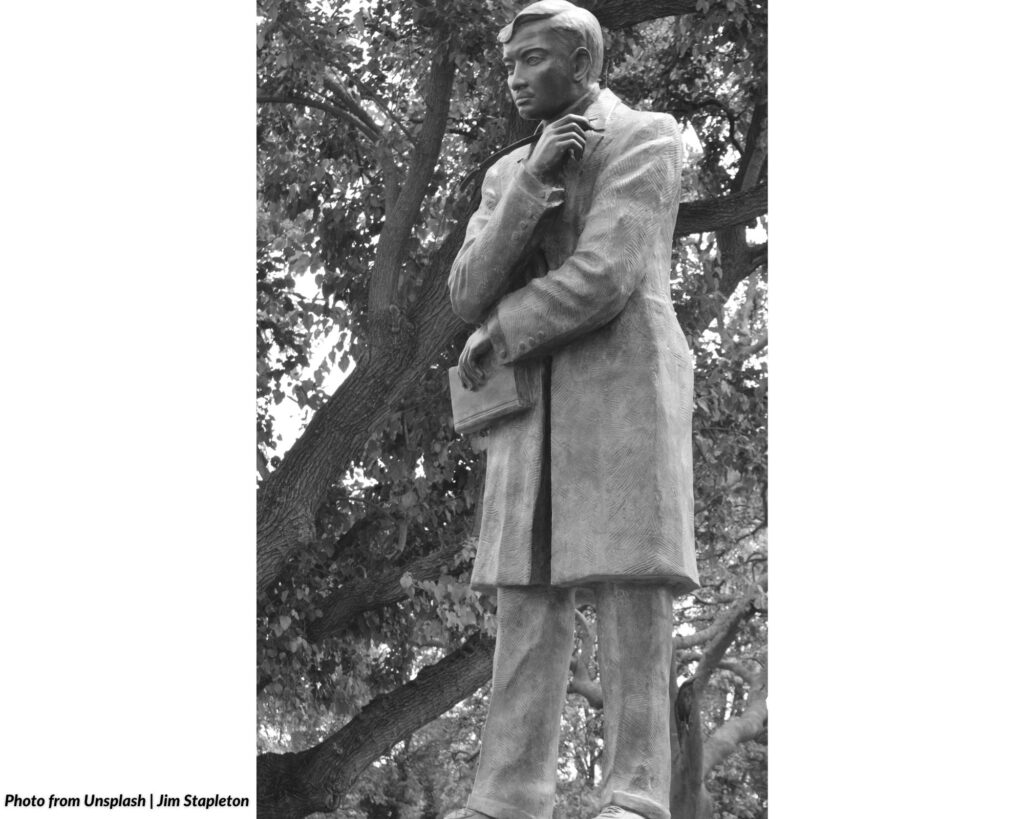
Photo from Unsplash | Jim Stapleton
The following post does not create a lawyer-client relationship between Alburo Alburo and Associates Law Offices (or any of its lawyers) and the reader. It is still best for you to engage the services of a lawyer or you may directly contact and consult Alburo Alburo and Associates Law Offices to address your specific legal concerns, if there is any.
Also, the matters contained in the following were written in accordance with the law, rules, and jurisprudence prevailing at the time of writing and posting, and do not include any future developments on the subject matter under discussion.
AT A GLANCE:
Rizal Day (December 30) is declared as a regular holiday pursuant to Proclamation No. 42, series of 2022.
Labor Advisory No. 26, series of 2023 provides for the guidelines and computation of payment of wages for the regular holiday on December 30, 2023.
Proclamation No. 42, series of 2022 declares December 30, among others, as a regular holiday in commemoration of Rizal Day.
Pursuant to Proclamation No. 42, series of 2022, as amended by Proclamation No. 90, series of 2022, Department of Labor and Employment (DOLE) issued Labor Advisory No. 26, Series of 2023 (L.A. No. 26-2023).
Labor Advisory No. 26, series of 2023 provides that on the Regular Holiday of December 30, 2023 (Rizal Day), the following rules apply:
“2.1. If the employee does not work, the employer shall pay 100% of the employee’s wage for that day, provided that the employee reports to work or is on leave of absence with pay on the day immediately preceding the regular holiday. Where the day immediately preceding the regular holiday is a non-working day in the establishment or the scheduled rest day of the employee, he or she shall be entitled to holiday pay if the employee reports to work or is on leave of absence with pay on the day immediately preceding the non-working day or rest day (Basic wage x 100%);
2.2. For work done during the regular holiday, the employer shall pay a total of 200% of the employee’s wage for that day for the first eight hours (Basic wage x 200%);
2.3. For work done in excess of eight hours, the employer shall pay the employee an additional 30% of the of the hourly rate on said day (Hourly rate of the basic wage x 200% x 130% x number of hours worked);
2.4. For work done during a regular holiday that also falls on the employee’s rest day, the employer shall pay the employee an additional 30% of the basic wage of 200% (Basic wage x 200% x 130%);
2.5. For work done in excess of eight hours during a regular holiday that also falls on the employee’s rest day, the employer shall pay the employee an additional 30% of the hourly rate on said day (Hourly rate of the basic wage x 200% x 130% x 130% x number of hours worked).” (L.A. No. 26-2023)
To illustrate:
(Source: Alburo Law Offices Facebook page, accessed at
In the case of Asian Transmission Corporation v. Court of Appeals (G.R. No. 144664, March 15, 2004), the Supreme Court underscored the importance of holiday pay for special non-working days and for regular holidays such as Rizal Day, to wit:
“Holiday pay is a legislated benefit enacted as part of the Constitutional imperative that the State shall afford protection to labor. Its purpose is not merely to prevent diminution of the monthly income of the workers on account of work interruptions. In other words, although the worker is forced to take a rest, he earns what he should earn, that is, his holiday pay. It is also intended to enable the worker to participate in the national celebrations held during the days identified as with great historical and cultural significance.
Independence Day (June 12), Araw ng Kagitingan (April 9), National Heroes Day (last Sunday of August), Bonifacio Day (November 30) and Rizal Day (December 30) were declared national holidays to afford Filipinos with a recurring opportunity to commemorate the heroism of the Filipino people, promote national identity, and deepen the spirit of patriotism. Labor Day (May 1) is a day traditionally reserved to celebrate the contributions of the working class to the development of the nation, while the religious holidays designated in Executive Order No. 203 allow the worker to celebrate his faith with his family.”
Read also: Holiday Pay Computation for Bonifacio Day (Labor Advisory No. 224, series of 2023)
Alburo Alburo and Associates Law Offices specializes in business law and labor law consulting. For inquiries regarding taxation and taxpayer’s remedies, you may reach us at info@alburolaw.com, or dial us at (02)7745-4391/0917-5772207.
All rights reserved.


